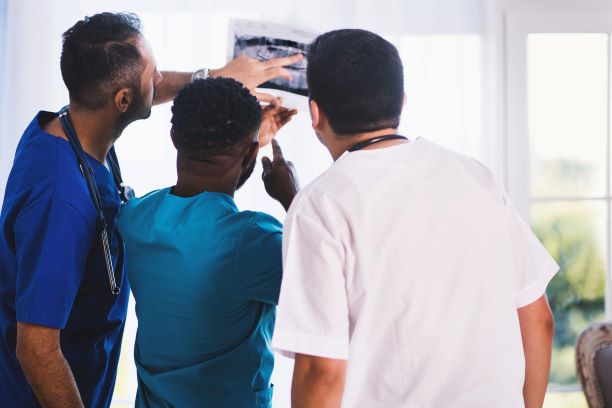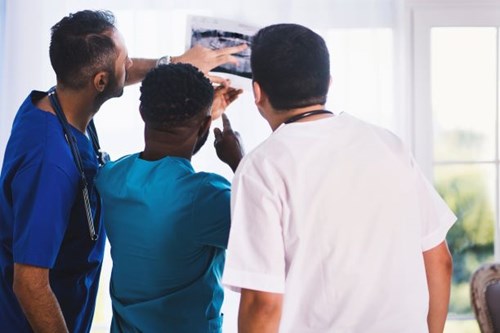
Mobile Healthcare App Development: Top 7 Factors to Consider
Today, more and more healthcare professionals are using custom healthcare solutions including mobile applications to interact and provide care plans for their patients.
According to Statista, the global estimation for mobile health (or mHealth) market is at 37 billion dollars in the year 2019, and forecasted to rise to 72 billion dollars by 2020 - a staggering 195% growth year over year.
Also, from another report by Statista, the number of mHealth apps available in the Apple App Store world-wide from 1st quarter 2015 to 3rd quarter 2019 rise from 28,343 apps to 44,384 apps, another 156% increase. Such strong statistics and predictions show a clear sign of high growth and increase demand for the mHealth market.
For healthcare organizations that are still operating under legacy desktop system, now is certainly the right time to develop their mHealth app.
Yet, in order to provide patients as well as other practitioner a positive app experience, healthcare organizations need to ensure that their mHealth app is developed meeting quality standards as well as other regulations, securely protecting users’ health data.
In this article, let's explore a number of key factors that healthcare organizations need to consider before starting their mHealth app development project:
1. Target Devices
Mobile healthcare app could mean different things for different people. For example, team of doctors and nurses would be more likely to use a comprehensive “patient care solution” allowing for viewing of reports and care plan as well as other functionalities, while a health-check/appointment booking app would be more likely to be used by patients.
In particular, healthcare practitioners would prefer to access their mHealth app via tablet while patient is more inclined to use their smartphone.
This is because enterprise healthcare app is usually optimized for tablet devices, since tablet can incorporate more features with better data visualization.
On the other hand, smartphone users would find it more convenient and speedy to use their mHealth app via smartphone.
Therefore, it’s important that you take into consideration the range of devices and platforms that your mHealth app will target, making sure that your healthcare app work seamlessly across devices.
2. Interoperability
The next important factor to consider when developing mobile healthcare app is their interoperability, working with existing legacy applications used by healthcare organizations.
Currently, most of modern enterprise healthcare solutions are cloud based – whereas legacy clinical applications still employ the traditional hosting using data center.
Healthcare organizations need to ensure that their newly built mHealth app works well with other applications, including other complex clinical systems (e.g. EHR, CRM, ERP), and a wide range of smart medical and wearables devices. Making sure that one single source of data can be accessed across the entire applications system.
3. UI/UX considerations
Doctors and other hospitals staffs will likely to find themselves having to enter patient case data into the app frequently. An intuitive and friendly app user interface will allow them to do so comfortably.
UI/UX, hence, plays an important role to ensure good adoption rate of the app from both practitioners and patients. Specifically, the app development team should make sure that the app provide a UI that is user-friendly and easy-to-navigate.
4. Agile Methodology
Team of skilled and experienced healthcare app developers will be able to divide their project into smaller iterations, which are measurable and deliverable goals. By employing agile methodology, both healthcare organizations and developers will be able to keep track of progress better. Detailed and smaller deliverable goals are essential to display progress in action.
Overall, it’s important to remember not to evaluate the entire project based on one big final outcome, but measure result and keep track of project progress in iteration.
"With experience of successfully completing various healthcare app development project for US healthcare institutions, TP&P Technology - a top software outsourcing company in Vietnam - can help your organization building custom healthcare solutions meeting all of your particular healthcare business requirements."
5. Data Encryption
Mobile Healthcare app will involve the handling of patients’ data including various sensitive information such as medical history and treatment etc. As a result, app developers need to employ encryption methods to ensure data can be securely stored and transmitted across systems, avoid potential malicious hacking activities to intercept and steal data.
This gives both patients and hospital staffs the confidence to entrust and store their data within the app. Besides, communication between doctor and patient must be kept confidential, and thus, encryption make it secure for each party to interact and communicate among themselves.
Furthermore, to safeguard patient care data from un-authorized access on a personal, device level, multi-factor authentication (MFA) should be used.
MFA requires separate ID verification such as passcode, fingerprint/facial recognition, or text message validation code to authenticate access of the app
6. Consider Minimum viable product (MVP) Development
MVP development allows healthcare organizations to quickly get their app developed by incorporating only the core features for the final product. This allows healthcare organization to collect users’ feedback and understand the audience’s opinion about the app.
More importantly, a successful MVP model will give the healthcare app owner the confidence before committing on a bigger, full-scale enterprise healthcare solutions development project.
Other advantages of MVP development include: lower development cost, quick time-to-market etc.
7. App Testing
Last but not least, security plays a critical role in ensuring the success of the entire mHealth app development project. App must be built so that users can securely use and protected from viruses, security breaches and other hacking activities.
Specifically, healthcare app must be built to comply with HIPAA regulation as well as other industry standards, including: Fast Healthcare Interoperability Resources (FHIR), Health Level Seven (HL7), and Digital Imaging And Communications In Medicine (DICOM) – this is to ensure secure data transfer and avoid any potential issues of data leak.
QA and software testing team need to perform thorough testing ensure the app’s compliance with the above mentioned regulations by integrate testing with relevant test cases, verifying that data entered is correctly stored across the app as well as exchanged and processed accordingly under the different network conditions.
Conclusion:
Developing mobile application for healthcare organization needs to take into consideration many factors in details. It’s an endeavor that requires research, time and effort. However, the return on investment of a successful app is well worth the effort.
Contact TP&P Technology today to talk to us about your healthcare app development requirements.



